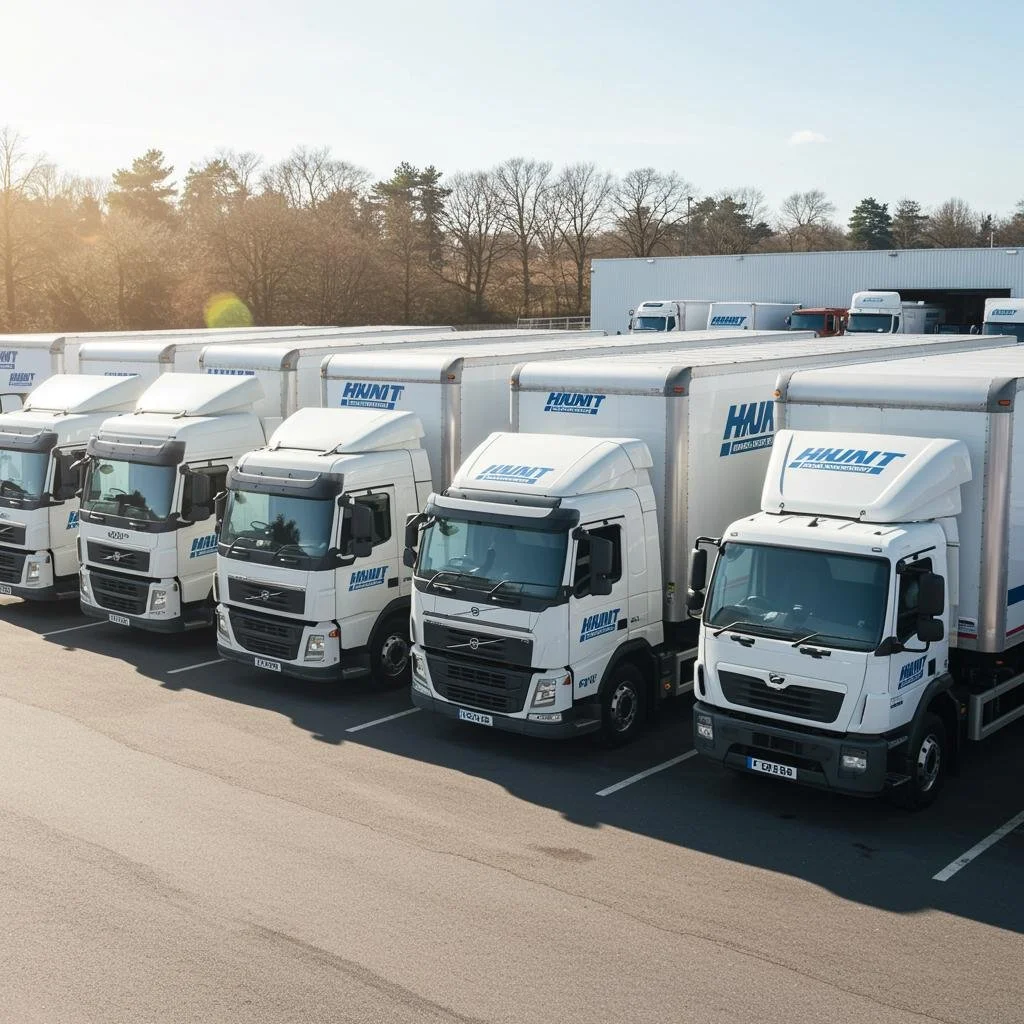Safeguarding Supply Chain: Ensuring NERC CIP Compliance
Supply Chain Security is an essential part of Supply Chain Management that safeguards both the physical and digital components of products, software, and services. Supply Chain Security has grown more important than ever due to the complexity of modern supply chains and their numerous external suppliers, distributors, and logistical providers, which bring multiple threats.
From physical risks such as theft and sabotage to the rising threat of cyberattacks, securing the supply chain has become a top priority. Organizations must traverse security risks to ensure a safe workflow and the protection of sensitive data.
A set of standards that regulates the Bulk Electric System in the North American Electric Reliability Corporation Critical Infrastructure Protection (NERC CIP) plays a major role in safeguarding the System against cyber threats. These guidelines and standards provide security measures for entities supporting system reliability.
In this informative article, let’s take a deep dive and thoroughly explore the essential aspects and best practices of various strategies that can significantly impact supply chain security.
No. 1
Supply Chain Security
Supply chain security is a security component of supply chain management that concentrates on managing risks for suppliers, vendors, administration, and transport. The objective is to identify, evaluate, and minimize the risks that arise from working with other organizations as part of a supply chain.
Supply chain security covers physical product security and cybersecurity for services and software. Supply chains vary widely and often involve multiple businesses. A complete supply chain security strategy must adhere to risk management standards and a thorough understanding of cyber defense.
Components of Supply Chain Security
Physical Security and Integrity: Focusing on proper risk management helps to detect physical threats such as security audits, vulnerabilities, and data leakage.
Cybersecurity: The importance of cybersecurity in supply chain security helps to avoid risks in systems, software, and networks.
Attacks on Supply Chain Security
The safety of global supply chains is consistently under threat due to immoral individuals who maliciously exploit their intelligence, leading to significant disruptions. These malevolent attacks have the potential to cripple the system, causing critical malfunctions, compromising sensitive information, and ultimately resulting in substantial financial repercussions and damage to reputation.
The different types of supply chain security attacks include:
Pre-installed Malware on Devices
Software and Firmware Attacks
Stolen Certificates
Third-Party Access Exploitation
According to a survey conducted by the Statista Research Department published by Ani Petrosyan, In 2023, there were approximately 242 reported supply chain assaults in the United States. This marks the highest reported figure since 2017. Overall, supply chain attacks increased by 115 percent between 2022 and 2023.
No. 2
NERC CIP
The North American Electric Reliability Corporation Critical Infrastructure Protection (NERC CIP) is a set of guidelines given to regulate, implement, observe, and manage the security of North America's Bulk Electric System (BES).
These rules are crucial for keeping the BES safe from cyberattacks, ensuring that important data remains protected and that energy is delivered reliably throughout North America, meeting nerc cip compliance standards, and coordinating the efforts to improve the security of the North American power system. Following these guidelines allows organizations to enhance electric grid security and maintain uninterrupted service, supporting network stability and security.
In line with these requirements, integrating advanced security solutions like the Z3 security appliances provides an additional layer of protection, ensuring that all network points, from local offices to remote locations, are fortified against potential threats.
Overview of NERC CIP
The overview of NERC CIP standards and their legal enforceability comply with fundamental standards. These standards outline the procedures that must be followed diligently to uphold and ensure the security standards are met.
The NERC CIP standards safeguard the Bulk Electric System with legally enforceable requirements, indicating that the compliance covers a wide variety of security measures aimed at protecting critical infrastructure from cyber threats. All owners, operators, and consumers of the Bulk Electric System must meet NERC CIP standards.
This means utility companies, power-producing facilities, transmission operators, and similar businesses must comply with these rules. By adhering to these standards, these firms safeguard the reliability and security of the electric grid, shielding it from any cyberattacks and disturbances.
The 10 important NERC Standards
NERC CIP-002-5.1a BES Cyber System Categorization: It discusses the classification of BES Cyber Systems based on their impact.
NERC CIP-003-8 Security Management Controls: An overview of requirement standards for security management and accountability.
NERC CIP-004-6 Personnel and Training: Addresses the training and access management requirements for personnel.
NERC CIP-005-6 Electronic Security Perimeters: Explains the requirements for setting up and maintaining electronic security perimeters.
NERC CIP-006-6 Physical Security of BES Cyber Systems: Summarizes the physical security measures required.
NERC CIP-007-6 System Security Management: Describes the technological controls for system security management.
NERC CIP-008-6 Incidence Reporting and Response Planning: Examines the incident response planning and reporting standards.
NERC CIP-009-6 Recovery Plans for BES Cyber Systems: Describes the recovery plan requirements.
Importance of NERC CIP Compliance
Ensuring Reliable Power Supply
NERC CIP compliance is essential to maintaining North America's power supply security and reliability. By following these standards, utilities, and operators can protect the Bulk Electric System (BES) from cyberattacks. This involves setting up strong security mechanisms to quickly identify and deal with any potential issues.
As a result, individuals can feel assured that their electricity will remain stable and protected, even in the face of emerging cyber threats. Adhering to NERC CIP standards ensures the safety not only of the physical infrastructure of the electrical grid but also safeguards the confidentiality and integrity of the data that drives its operations.
Compliance Monitoring and Enforcement
Strong supervision and rule-following systems are implemented diligently to ensure strict compliance with NERC CIP standards. NERC or its affiliated local groups conduct routine assessments to verify the adherence of power and control entities to essential online safety protocols and infrastructure protection measures. Any violations may result in significant fines and increased scrutiny, potentially impacting the organization's financial stability and reputation.
Regular checks also help to find problems early, so they can get fixed fast. Ensuring NERC CIP follow-through is not just about escaping fines; it's also about upholding the power grid's strength, reliability, and trustworthiness to ensure a secure and stable energy supply for all.
Future Trends and Developments
The circumstances of supply chain security constantly evolve, driven by advancements in technology and new threats. In the future, we can expect an increased emphasis on combining artificial intelligence and machine learning with security measures for detecting and responding to abnormalities more quickly.
Blockchain technology is also anticipated to have a significant impact by enhancing transparency and traceability within supply chains, thus creating challenges for malicious individuals attempting to manipulate data and information. This innovative technology is poised to revolutionize the way information is handled and secured along the supply chain, fostering a more trustworthy and reliable ecosystem for all stakeholders involved.
Furthermore, there will be an increased demand for stronger, more robust, and dynamic security frameworks. The shift towards implementing stringent security measures, where every entity is consistently and thoroughly inspected for vulnerabilities, irrespective of its positioning within or beyond the network infrastructure, is anticipated to gain widespread adoption in the foreseeable future.
takeaways
Protecting the supply chain is crucial in today's landscape, as it faces a myriad of threats ranging from physical security risks to cyber vulnerabilities. Given the intricate nature of the supply chain ecosystem, with its multitude of suppliers, vendors, and end-users, it becomes susceptible to exploitation by malicious entities.
To ensure robust security, organizations must implement comprehensive risk management plans and adhere to stringent protocols. By staying vigilant and adaptable, businesses can continually enhance their security measures to safeguard not only their supply chains but also their critical infrastructure effectively.
To summarize, a proactive and integrated approach to supply chain security, together with rigorous adherence to NERC CIP regulations, is essential for reducing risks and guaranteeing the reliability and security of operations in a world that is becoming more connected.
FAQ
What are the NERC CIP security standards?
The North American Electric Reliability Corporation (NERC) Critical Infrastructure Protection (CIP) standards are a set of essential security laws and guidelines helpful in safeguarding the Bulk Electric System (BES) from cyber threats.
Which countries fall under NERC?
The United States, Canada, and the northern portion of Baja California, Mexico are the countries that fall under NERC.
Why is NERC compliance important?
NERC's compliance program aims to improve the quality of service of North America's bulk power system (BPS) by effectively and consistently enforcing NERC Reliability Standards.
LOOKING FOR BUSINESS RESOURCES?
Are you seeking ways to elevate your business to new heights? Dive into the array of resources provided by our esteemed business partners designed to empower your ventures.






























